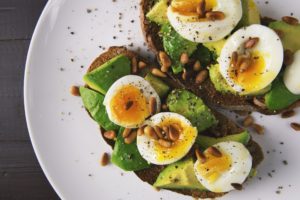
Which Fat is Bad for You?
Which fat is bad for you? Which fat is good for you? How much fat should I eat? These are the infamous questions that frolic around everyone’s mind as it relates to dietary fat.
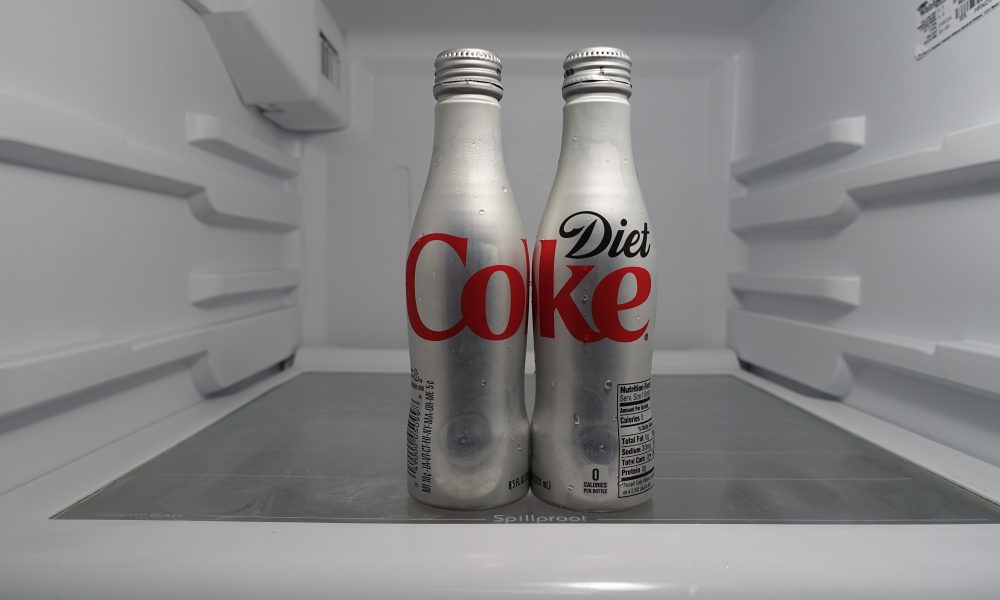
Let’s talk about artificial sweeteners baby! This topic is extremely controversial, often with non-scientific arguments made against them. Instead, let’s take an objective scientific approach to answering the infamous question, are artificial sweeteners truly bad for you?
But first, here’s a short disclaimer. If you’re someone who gets your information from clickbait headlines and fear-mongering news reports, you’re probably on the wrong side of this debate. The truth is going to hurt, especially if you’re easily offended, so you might not want to read this article. Your ego will be painfully smashed into a billion pieces as if Thanos took a big ole swing at you.
Ok disclaimer over. Let’s talk zero calorie sweeteners scientifically known as non-nutritive sweeteners or zero calorie sweeteners. For the sake of familiarity, I’ll be calling them artificial sweeteners even though this term isn’t always accurate. In addition, I’ll specify specific sweeteners when needed.
There are artificial sweetener studies showing negative effects, but these studies are usually done in rats with astronomically high doses or are epidemiological studies. Many people will falsely misquote these studies with a lack of basic scientific understanding. Here are the issues with this:
Now let’s discuss all the finer details based on controlled human research and quality evidence, shall we?
The first common argument against artificial sweeteners is that it’s artificial. Most people think artificial is automatically bad and natural is automatically good.
However, the ..-distinction between natural and artificial is quite blurry. Depending on what definition you go by, certain things can be both natural and artificial.
But regardless, this argument is dumb. cough syrup, everyday products, and even vitamins used to sustain third world countries are all artificial yet are extremely beneficial.
On the other hand, have you ever heard of Coumarin, calamus oil, and ephedra?
Probably not. These are completely natural substances that have been banned by the FDA because they are more toxic than your ex.
Hurricanes are also natural and medicine is artificial. One is designed to take life and the other to save it. Natural isn’t always good and artificial isn’t always bad.
So despite what fear mongering media says, hundreds of organizations deem artificial sweeteners to be safe including the European Food Safety Authority, World Health Organization, The US Food and Drug Administration (FDA), and The Scientific Committee for Food all with acceptable daily limits well beyond what the average person consumes.
I also find it funny how people love to say we don’t know artificial sweetener’s long term effects even though most of them have been around and approved for 40-100 years.
Let’s start with aspartame, probably the most controversial artificial sweetener of them all. It’s often labeled as chemically dangerous despite it’s use in diet sodas, low-calorie drinks, yogurt, gum, sugar free products, and chapstick for decades.
Your body breaks down aspartame into these 3 substances, phenylalanine, aspartic acid, and methanol. While these substances sound dangerous because High School dropouts can’t pronounce them, all 3 ingredients are found in exponentially larger doses in safe everyday foods like chicken, beef, milk, tomatoes, and grape juice.
A cup of pumpkin seeds has about 25 times the amount of phenylalanine as a can of diet soda.
A palm size of chicken has 35 times the amount of aspartic acid as a can of diet soda.
Methanol poses the greatest risk, but the methanol in aspartame is minimal, quickly broken down, and not traceable in blood unless it exceeds a certain amount (2). You would have to drink hundreds of cans of diet soda in one sitting just to reach any potential risk of dosage. Your kid’s apple juice actually contains far more methanol than artificially sweetened beverages.
A published review showed aspartame to be safe even in habitually high users. It had no adverse effects (2).
Here’s a 2015 study looking at the safety and toxicity of aspartame (3). It found the same thing. Aspartame is fine to consume.
Moving on to other specific artificial sweeteners. The scientific research reveals the same thing.
Sucralose has been shown to be perfectly safe even when tested at doses well beyond normal ingestion levels (4,21).
In another review, they found both sucralose and Splenda to be safe (5).
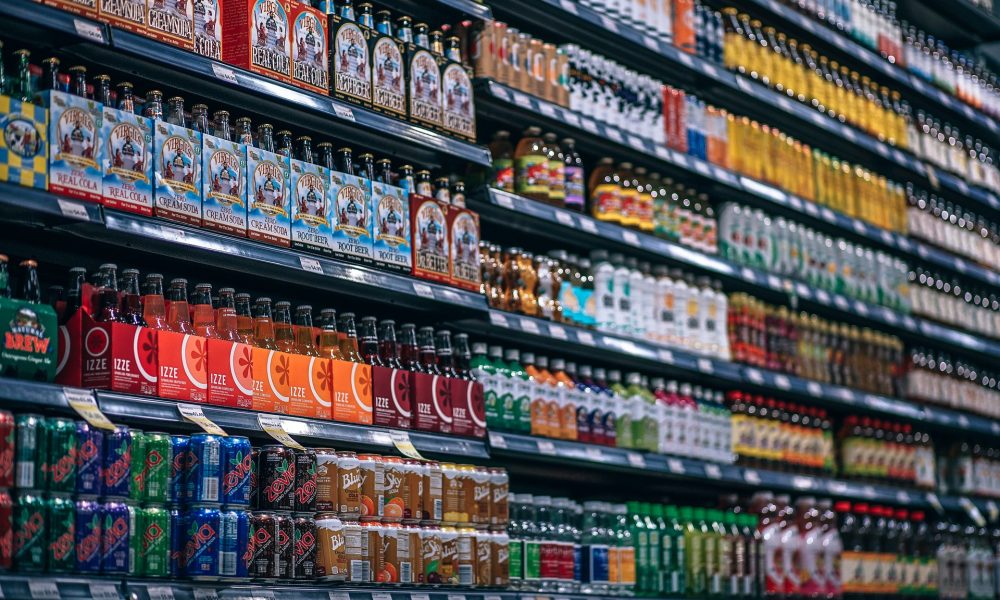
This 2019 systematic review and meta-analysis showed no health difference between groups who consumed artificial sweeteners and groups who didn’t (7). This deeply comprehensive review alone pretty much debunks every myth about artificial sweeteners being bad including the myth that artificial sweeteners cause cancer.
The human evidence overall consistently shows artificial sweeteners to be safe (6). One meta-analysis found artificial sweetener users do not differ in health/hunger/bodyweight from non-users (19).
Artificial sweeteners aren’t just some government ploy to poison you. Another independent study showed these sweeteners go through hundreds of scientific studies before being deemed safe (11). As long as you’re not some freak who chugs a lake of diet coke daily, you’re fine to consume artificial sweeteners.
Regardless of their safety, you’ll still have haters. These people claim artificial sweeteners still spike insulin and trick your body into thinking it’s sugar thus causing you to get fat despite being 0 calories.
This is why you see so many clickbait articles talking about how diet soda is so much worse than regular when in reality, it’s not.
Let’s look at the research in diabetics because they’re the population that is most likely going to show an insulinogenic response to artificial sweeteners.
This review study looked at artificial sweetener’s effect on both type 1 and type 2 diabetics showing artificial sweeteners had no effect on glycemic responses or plasma lipid levels (8). In fact, one study in this review even found sucralose to have a beneficial effect on blood glucose. This paper also concluded that replacing caloric beverages with artificially sweetened one is a great tool for weight loss and can increase diet compliance.
In a 2018 Systematic Review and Meta-analysis of 29 randomized controlled trials, it showed artificial sweeteners do not elevate blood glucose (9).
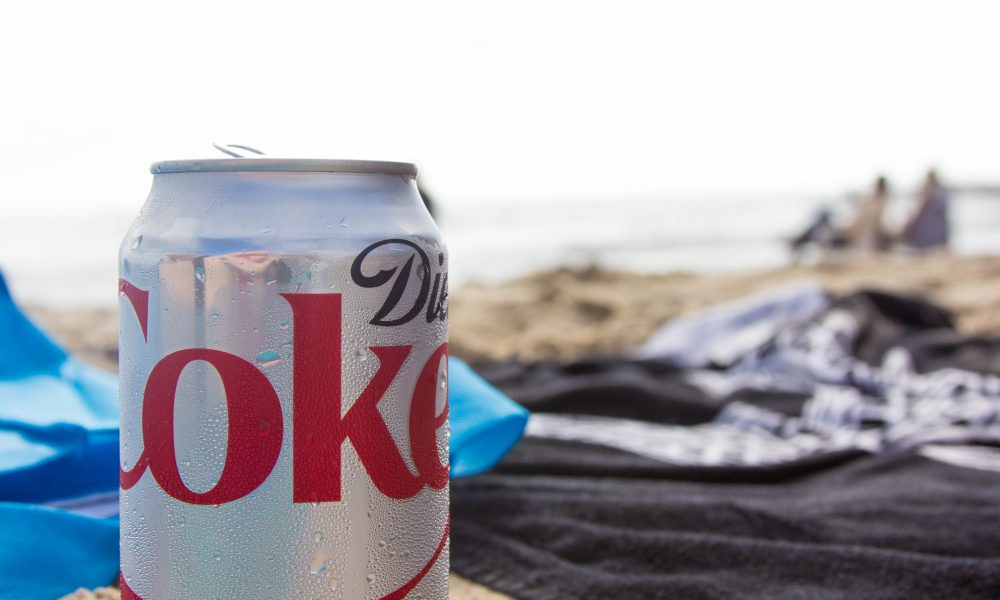
As you can see, your body is wonderfully designed. It doesn’t just trick itself into thinking calories are present, spike insulin, and store fat when it’s physiologically impossible.
To further prove my already obvious point, let’s look at a really well designed 12 week randomized controlled trial done with 100 subjects (10).
Subjects were randomly split into 3 groups. One group ingested 0 mg of aspartame daily. Another group had 350 mg of aspartame daily which is about the equivalent of 2 cans of diet coke. And the third group had 1050 mg of aspartame daily which is about 6 cans of diet coke.
After 12 weeks, there was no effect on glycemia, appetite, or bodyweight between groups even in the group who pretty much consumed 6 cans of diet coke worth of artificial sweeteners for 84 days straight!
Furthermore, a 2019 randomized double-blinded crossover trial found sucralose and aspartame had no effect on glucose metabolism (23). Artificial sweeteners don’t even impact your ability to metabolize sugar (29).
Oh, and a 2020 systematic review still found artificial sweeteners are not insulinemic (31).
One of the advantages of artificial sweeteners is that they are usually zero calories. This can be a great weight loss tool when replacing calories you typically eat or drink.
This randomized controlled trial showed replacing caloric beverages with diet beverages or water is an excellent strategy for weight loss (12). In fact, the group who replaced caloric beverages with diet beverages was shown to have a higher chance for more weight loss than the group who replaced caloric beverages with water.
Now, this doesn’t mean you should neglect water and drink only diet soda. It just means for weight loss, replacing the caloric beverages you already drink like regular soda with either diet soda or water are both great strategies with diet sodas being potentially better.
In fact, a recent systematic review showed people have more favorable weight with artificial sweetener consumption (28).
One of the common attacks on artificial sweeteners is that they negatively impact your gut bacteria. The evidence is actually very weak on this.
The best study for this claim is extremely poorly designed (17). Researchers poured an absurd amount of sucralose on a couple of strains of bacteria in a petri dish. This is an extremely inorganic setting that doesn’t translate to human physiology, not to mention the amounts used in this study isn’t even fathomable, not even for a diet coke addict.
There are no studies done in living humans showing negative gut effects with reasonable doses.
An up to date review addressed all this and comprehensively looked at the current human research with reasonable doses showing no adverse effects to the gut microbiota (15).
A separate study done in 2019 found consuming 780 mg of sucralose daily for 7 days posed no harm to gut health, glycemic control, or any other metabolic markers (22). That’s about 65 packets of Splenda daily.
Furthermore, 400 mg of saccharin didn’t impact gut microbiome diversity or composition (36).
And research continues to stack higher than a giraffe that artificial sweeteners don’t impact your gut microbiome, composition, or hormones (29,30).
Some people will claim even though artificial sweeteners are 0 calories, they’ll disrupt your appetite and cause you to eat more calories especially sugary calories.
Sorry haters. This isn’t true either.
Some of the reviews I already talked about, showed artificial sweeteners do not affect appetite, but here’s more specific evidence.
This study showed both stevia and aspartame didn’t affect hunger, satiety, or cause participants to eat more (13).
Another study showed artificial sweeteners affect both your brain’s reward and satiety response, but feeding behavior is not negatively impacted (20).
And this 2018 study showed artificial sweeteners have the same effect on your appetite as water (14).
And yet another study showed stevia doesn’t increase further food intake or increase blood sugar (25).
Literally, we have piles of research that show all sorts of artificial sweeteners either have a neutral effect on appetite, reduces caloric intake, or decreases the desire for sweet foods (26,27,32,33,34,35).
If you have a bad habit of over consuming sweets, it’s probably not artificial sweetener’s fault, it’s your lifestyle’s fault.
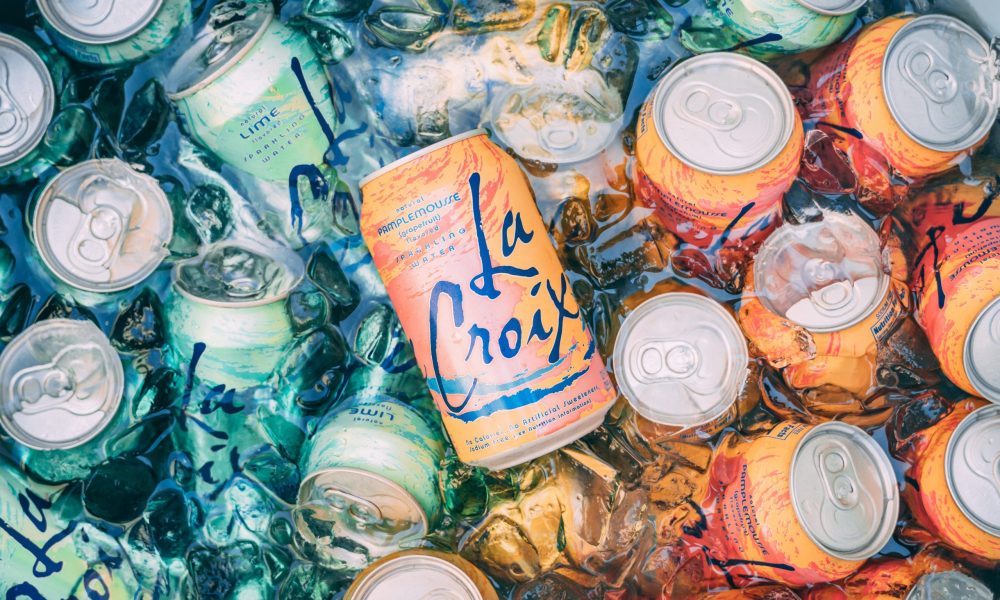
Some people claim they are sensitive to artificial sweeteners like aspartame, reporting negative side effects. Let’s look at a double-blind randomized crossover study to see if this is true (16).
This study took 48 people who claim to be aspartame sensitive along with 48 non-sensitive people matching in age/gender.
Researchers gave both groups an aspartame containing (100 mg) snack bar and a controlled snack bar without aspartame 7 days apart. Both times they were told, they’ve been fed the aspartame bar even though 1 of the bars didn’t have any artificial sweeteners.
14 symptoms, biochemistry, and metabolic response were measured. The self-proclaimed sensitive group reacted the same for all 14 symptoms in both feeding instances indicating the self-labeled intolerance to aspartame is caused by the nocebo effect.
The researchers further proved this point thanks to the comprehensive test they did on the subject’s biochemistry and metabolism of aspartame. In both groups, their bodies were shown to break down aspartame just fine with no issues.
So if you think you’re aspartame intolerant, it’s most likely just the nocebo effect meaning side effects are caused by your head simply because you expect/believe them. In other words, you played yourself.
Besides being in some of my protein powders, I don’t really consume artificial sweeteners. I hate the taste of most diet beverages especially diet coke. It tastes like grinded rocks mixed with moldy water that’s been gargled in someone’s mouth before packaging.
But still, any one person’s personal feelings including my own doesn’t override the cold hard facts.
As you can see objectively, artificial sweeteners are largely a neutral substance with a few potential advantages. They don’t contain any micronutrients, but they do enhance our lives through making food taste better, aiding in weight loss, improving diabetic control, and increasing dietary adherence (24).
So to recap everything, here’s the truth about artificial sweeteners.
Hope this article helps you my friend.
Rogers, Peter J., et al. “Sweet Satiation: Acute Effects of Consumption of Sweet Drinks on Appetite for and Intake of Sweet and Non-Sweet Foods.” Appetite, Academic Press, 11 Feb. 2020, www.sciencedirect.com/science/article/abs/pii/S0195666319314503#bib5.
Stamataki, Nikoleta S, et al. “Stevia Beverage Consumption Prior to Lunch Reduces Appetite and Total Energy Intake without Affecting Glycemia or Attentional Bias to Food Cues: A Double-Blind Randomized Controlled Trial in Healthy Adults.” OUP Academic, Oxford University Press, 3 Mar. 2020, academic.oup.com/jn/article-abstract/150/5/1126/5775552?redirectedFrom=fulltext.
Laviada-Molina H;Molina-Segui F;Pérez-Gaxiola G;Cuello-García C;Arjona-Villicaña R;Espinosa-Marrón A;Martinez-Portilla RJ; “Effects of Nonnutritive Sweeteners on Body Weight and BMI in Diverse Clinical Contexts: Systematic Review and Meta-Analysis.” Obesity Reviews : an Official Journal of the International Association for the Study of Obesity, U.S. National Library of Medicine, pubmed.ncbi.nlm.nih.gov/32216045/.
DS;, Ahmad SY;Friel JK;Mackay. “Effect of Sucralose and Aspartame on Glucose Metabolism and Gut Hormones.” Nutrition Reviews, U.S. National Library of Medicine, pubmed.ncbi.nlm.nih.gov/32065635/.
Ahmad, Samar Y., et al. “The Effects of Non-Nutritive Artificial Sweeteners, Aspartame and Sucralose, on the Gut Microbiome in Healthy Adults: Secondary Outcomes of a Randomized Double-Blinded Crossover Clinical Trial.” MDPI, Multidisciplinary Digital Publishing Institute, 6 Nov. 2020, www.mdpi.com/2072-6643/12/11/3408.
Greyling, Arno, et al. “Acute Glycemic and Insulinemic Effects of Low-Energy Sweeteners: a Systematic Review and Meta-Analysis of Randomized Controlled Trials.” OUP Academic, Oxford University Press, 16 July 2020, academic.oup.com/ajcn/article-abstract/112/4/1002/5872362?redirectedFrom=fulltext.
Farhat, Grace, et al. “Effects of Stevia Extract on Postprandial Glucose Response, Satiety and Energy Intake: A Three-Arm Crossover Trial.” Nutrients, MDPI, 12 Dec. 2019, www.ncbi.nlm.nih.gov/pmc/articles/PMC6950708/.
Rogers, Peter J., and Katherine M. Appleton. “The Effects of Low-Calorie Sweeteners on Energy Intake and Body Weight: a Systematic Review and Meta-Analyses of Sustained Intervention Studies.” Nature News, Nature Publishing Group, 9 Nov. 2020, www.nature.com/articles/s41366-020-00704-2.
Serrano, Joan, et al. “High-Dose Saccharin Supplementation Does Not Induce Gut Microbiota Changes or Glucose Intolerance in Healthy Humans and Mice.” Microbiome, BioMed Central, 12 Jan. 2021, microbiomejournal.biomedcentral.com/articles/10.1186/s40168-020-00976-w.
Grab my free checklist on how to defeat your worst food cravings

Which fat is bad for you? Which fat is good for you? How much fat should I eat? These are the infamous questions that frolic around everyone’s mind as it relates to dietary fat.

You know what’s awesome? Losing fat. You know what’s not awesome? Losing muscle.
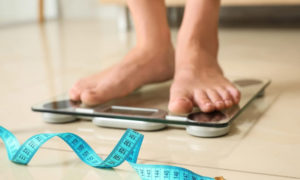
The scale is a dick huh? Well, that’s what you assume because you’re hyperemotional about it, so perhaps you’re the dick here. Didn’t think I’d turn the tables like that so early huh?